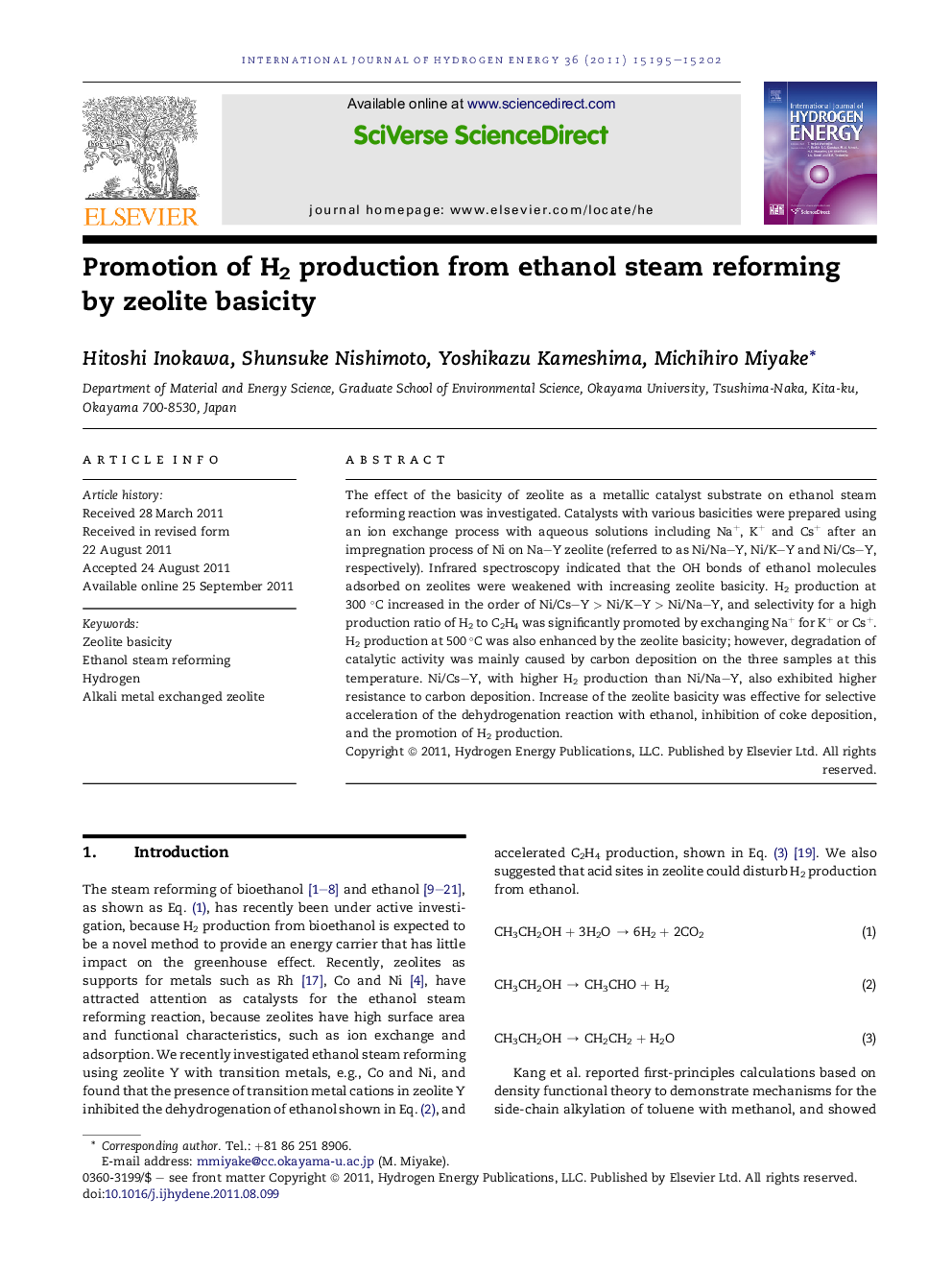| Article ID | Journal | Published Year | Pages | File Type |
|---|---|---|---|---|
| 1271812 | International Journal of Hydrogen Energy | 2011 | 8 Pages |
The effect of the basicity of zeolite as a metallic catalyst substrate on ethanol steam reforming reaction was investigated. Catalysts with various basicities were prepared using an ion exchange process with aqueous solutions including Na+, K+ and Cs+ after an impregnation process of Ni on Na–Y zeolite (referred to as Ni/Na–Y, Ni/K–Y and Ni/Cs–Y, respectively). Infrared spectroscopy indicated that the OH bonds of ethanol molecules adsorbed on zeolites were weakened with increasing zeolite basicity. H2 production at 300 °C increased in the order of Ni/Cs–Y > Ni/K–Y > Ni/Na–Y, and selectivity for a high production ratio of H2 to C2H4 was significantly promoted by exchanging Na+ for K+ or Cs+. H2 production at 500 °C was also enhanced by the zeolite basicity; however, degradation of catalytic activity was mainly caused by carbon deposition on the three samples at this temperature. Ni/Cs–Y, with higher H2 production than Ni/Na–Y, also exhibited higher resistance to carbon deposition. Increase of the zeolite basicity was effective for selective acceleration of the dehydrogenation reaction with ethanol, inhibition of coke deposition, and the promotion of H2 production.
► Ni supporting zeolite Y with basicity controlled by ion exchange process. ► Catalysis for ethanol steam reforming reaction to produce hydrogen. ► The basicity of the zeolite selectively accelerated dehydrogenation reaction. ► The basicity enhanced hydrogen production and resistance for carbon deposition.
